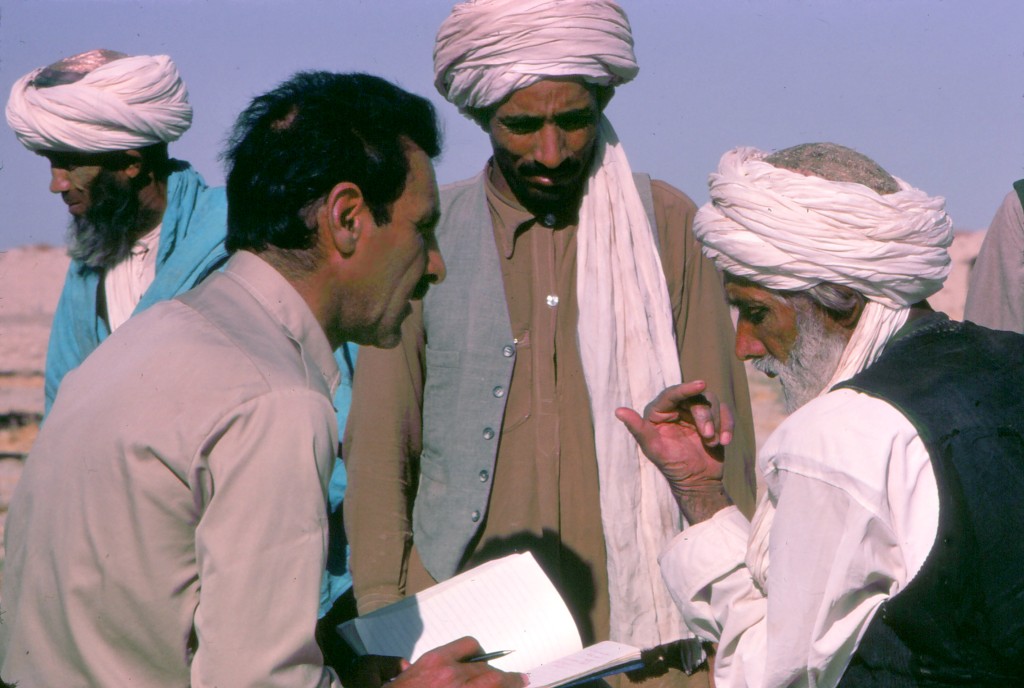
Finding Mr. Amiri
Contained in the boxes of materials for Helmand Sistan Project publications was a complete but unpublished manuscript written by our Afghan Institute of Archaeology partner, Ghulam Rahman Amiri, who accompanied us into the field each season. In addition to his archaeological work, Mr. Amiri interviewed local villagers and our workmen and compiled the first ethnography of culture, economics, and politics of the Helmand Baluch villages. This was a unique document from the 1970s, written by an Afghan scholar rather than a westerner. Mr. Amiri wrote it in Dari and we translated it to English, where it sat with the rest of the project papers until the publication phase began in recent years. We were excited to move it forward to publication. But there was one problem, what happened to Mr. Amiri? The book was his intellectual property and we couldn’t publish it without his approval. We knew only that he had stayed in Kabul for years after the Soviet invasion, a Marxist who welcomed the leftist government who rewarded him by making him Minister of Tourism. But his many links to the west were suspicious, so he was later arrested, jailed, and then fled to New Delhi. An extensive web search finally turned up a young woman who appeared to be his daughter, Geeti Amiri, an Afghan-Danish immigrant activist in Copenhagen who had written about her father the archaeologist. Thank you Google Translate! Messages were exchanged and we were introduced to the whole Amiri clan, sans Mr. Amiri, who had passed away 15 years earlier of ALS. His eldest son, Babrak, who had emigrated to the U.S., not only was enthusiastic to give us permission to publish the book but also volunteered to check the translation we had of the manuscript and gather material for a brief biography of his father. The book was published in 2020 by Berghahn Books.


